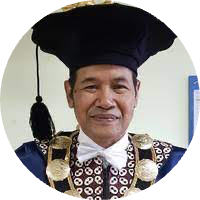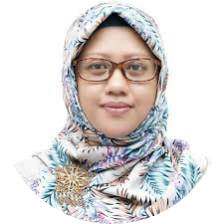Ethnomathematics in the culture of mountain rice farming of the Dayak Kanayatn community
DOI:
https://doi.org/10.21831/ej.v3i1.48725Keywords:
Dayak Kanayatn, ethnomathematics, mountain riceAbstract
Rice is the staple food for people in West Kalimantan. One of the regions with rice farming culture is the Tunang village in Mempawah Hulu sub-district, Landak district, West Kalimantan, which is influenced by the habits of the population and geographical location. There are a series of processes for growing rice in the village that are inseparable from culture and can be linked to mathematics (ethnomathematics). The objective of this study is to identify the ethnomathematics of the cultivation of mountain rice or moton rice in the Dayak Kanayatn tribe, especially the Dayak Ahe tribe. This study uses a qualitative approach with a descriptive method. Data collection techniques include literature studies, surveys, and interviews. The results show that rice farming activities in the Dayak Ahe community include clearing the land (nabas uma), cutting down trees (nabang), burning the field (nunu uma), cleaning the field after the burning (marasehan uma), sowing (nugal uma), weeding (ngarumput uma), and harvesting the rice (bahanyi). These processes are accompanied with a series of ritual ceremonies, namely nabo' panyugu nagari, nabo' panyugu tahutn/naik dango, ngawah, batanam padi (which consists of ngalabuhatn, ngamalo lubakng tugal, and ngiliratn panyakit padi), ngaladakng buntikng padi, ngabati', and ngaleko. There are ethnomathematics values contained in the ceremonies, namely points and lines, three-dimensional figures, two-dimensional shapes, counting, and symmetry of shape.
References
Ahyat, I. S. (2016). Masyarakat Dayak di Kesultanan Kutai pada Abad Ke-19. Paradigma, Jurnal Kajian Budaya, 1(1), 28–42. https://doi.org/10.17510/paradigma.v1i1.3
D'Ambrosio, U. (1985). Ethnomathematics and its place in the history and pedagogy of mathematics. For the Learning of Mathematics, 5(1), 44–48. http://www.jstor.org/stable/40247876
Djuweng, S. (2003). Tradisi lisan Dayak yang tergusur dan terlupakan. Institut Dayakologi.
Farukhi, F., & Afrida, V. (2008). Mengenal 33 Provinsi Indonesia Kalimantan Barat. Sinergi Pustaka Indonesia.
Klinken, G. van. (2006). Colonizing Borneo: state-building and ethnicity in Central Kalimantan. Indonesia, 81, 23–49. https://www.jstor.org/stable/40376381
Lontaan, J. U. (1975). Sejarah hukum adat dan adat istiadat Kalimantan Barat. Pemda Tingkat I Kalimantan Barat.
Mathew, R. (2012). Effect of methyl jasmonate and chitosan on growth characteristics of Ocimum basilicum L., Ocimum sanctum L. and Ocimum gratissimum L. cell suspension cultures. African Journal of Biotechnology, 11(21), 4759–4766. https://doi.org/10.5897/AJB11.3183
Mulyana, R. (2011). Mengartikulasikan pendidikan nilai. Alfabeta.
Priskila, H. (2010). Tradisi naik dango suku Dayak Kanayatn kajian asal usul, proses ritual, fungsi, dan nilai [Universitas Sanata Dharma]. https://repository.usd.ac.id/25455/2/044114031_Full%5B1%5D.pdf
Saputra, H. S. P. (2007). Memuja mantra: Sabuk Mangir dan Jaran Goyang Masyarakat Suku Using Banyuwangi. LKiS.
Schiller, A. (2007). Activism and identities in an East Kalimantan Dayak Organization. The Journal of Asian Studies, 66(1), 63–95. https://doi.org/10.1017/S002191180700006X
Sellato, B. (1994). Nomads of the Borneo rainforest: The economics, politics, and ideology of settling down. University of Hawaii Press.
Subanji, S. (2011). Teori berpikir pseudo penalaran kovariasional. Penerbit Universitas Negeri Malang (UM Press).
Wallace, A. R. (2015). Sejarah Nusantara : The Malay archipelago (A. Asnawi, S. Abdullah, S. Sutrisno, & A. Erdiani (trans.)). Indoliterasi.
Downloads
Published
How to Cite
Issue
Section
Citation Check
License
The authors submitting a manuscript to this journal agree that, if accepted for publication, copyright publishing of the submission shall be assigned to Ethnomathematics Journal. However, even though the journal asks for a copyright transfer, the authors retain (or are granted back) significant scholarly rights.

Ethnomathematics Journal by https://journal.uny.ac.id/index.php/ethnomath is licensed under a Creative Commons Attribution-ShareAlike 4.0 International License.











